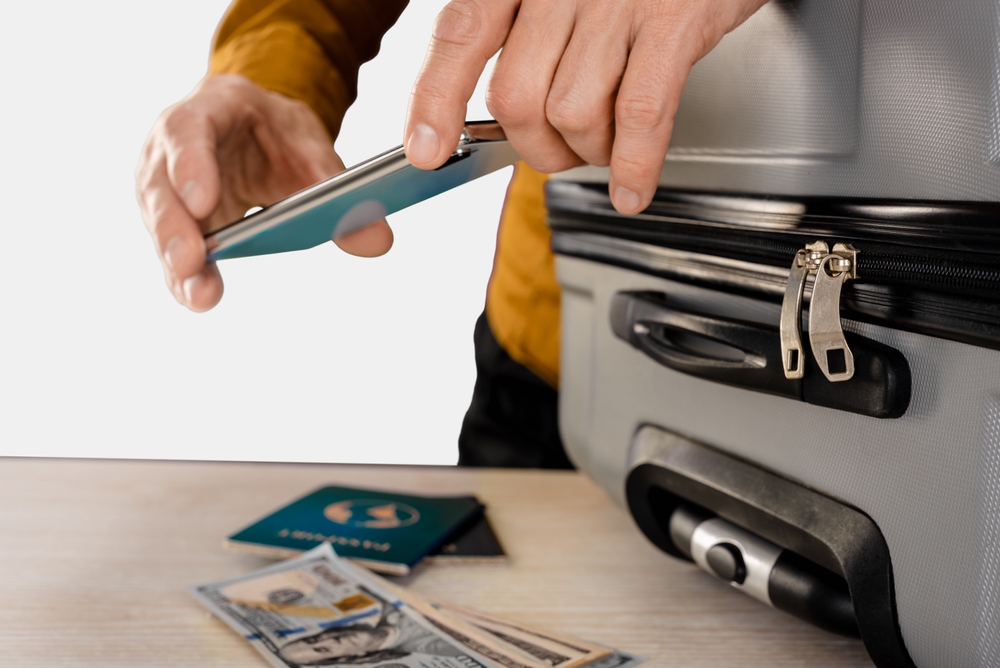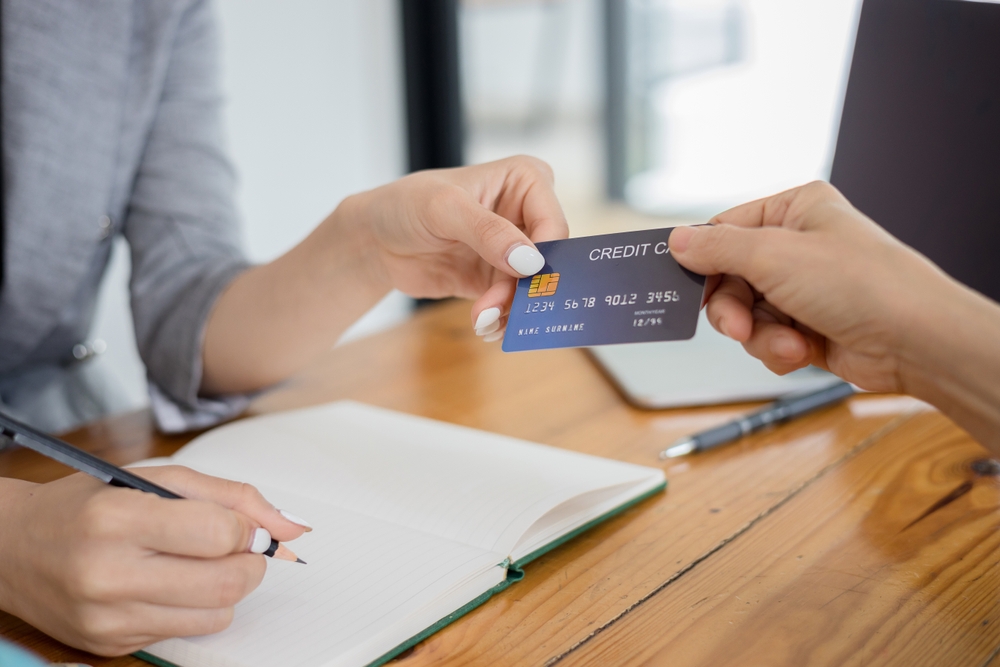Managing Cash or Cards Money Abroad
Traveling is exhilarating, but managing money while abroad can be a real puzzle. It’s a debate that never gets old – should you carry cash or rely on cards when you jet off? Let’s unravel the secrets of successful money management on your global adventures.
Pros and Cons of Cash
Pros of Using Cash Abroad

- Widespread Acceptance: Cash is universally accepted, making it the most reliable payment method in many parts of the world. From small street vendors to local markets, cash is often the preferred choice. You won’t face the inconvenience of places that don’t accept cards or digital payments.
- Budget Control: With cash, you physically see your money diminishing as you spend it. This tangible aspect of cash can help you stick to your budget more effectively. You’re less likely to overspend when you see the actual bills leaving your wallet.
- Privacy: Cash transactions are discreet and don’t leave a digital trace. If you value financial privacy, using cash can help you keep your spending habits and personal information more confidential. It’s an attractive feature for those who are concerned about their data security.
Read: Traveler&Guide: Using a VPN for Secure Connectivity Anywhere
Cons of Using Cash Abroad
- Security Risks: Carrying a significant amount of cash can be risky. The threat of theft or loss is ever-present, and losing cash while traveling can be a significant setback. You need to take extra precautions to secure your money, like using hidden pouches or hotel safes.
- Currency Exchange Fees: When you convert your home currency into the local currency, you may incur exchange fees. These fees can eat into your travel budget, particularly if you exchange money frequently. It’s crucial to find exchange services with reasonable rates to minimize this drawback.
- Inconvenience: Cash can be cumbersome, especially for large transactions. Counting bills and dealing with change can slow down your shopping or dining experiences. Plus, carrying a substantial amount of cash can be uncomfortable, and finding ATMs to withdraw more money may not always be convenient.
Pros and Cons of Cards
Pros of Using Cards Abroad
- Convenience and Security: Travel cards, credit cards, and debit cardsdebit cards offer a high level of convenience and security. You can make payments without the need for large amounts of physical cash. Cards often come with security features such as PINs and chip technology, reducing the risk of theft or loss.
- Currency Conversion Rates: Cards usually offer competitive currency conversion rates. When you make a purchase abroad, the card issuer often provides an exchange rate close to the market rate, which can be advantageous in terms of cost.
- Tracking Expenses: Cards offer an efficient way to track your spending. You can easily monitor your expenses through online banking or mobile apps. This real-time tracking can help you stay within your budget and manage your finances effectively.

Cons of Using Cards Abroad
- Acceptance Issues: While cards are widely accepted in many parts of the world, there are still places and businesses that prefer cash. Travelers may encounter situations where their card isn’t accepted, especially in remote or cash-dependent areas.
- Fees and Charges: Using cards abroad can come with fees. These fees may include foreign transaction fees, ATM withdrawal fees, and currency conversion fees. These costs can add up over the course of your trip, impacting your overall travel budget.
- Security Concerns: While cards offer security features, they are not entirely immune to risks. Card fraud and hacking remain concerns, and travelers should take precautions like notifying their bank of their travel plans and regularly monitoring their account for any unauthorized transactions.
Read: Travel Document Organization: Keeping Passports and Visas Safe
Preparing for Your Trip
Evaluating the Destination
Before you embark on your international adventure, it’s essential to evaluate your destination. Each place has its unique payment preferences and financial considerations. Factors to consider include:

- Currency: Familiarize yourself with the local currency. Understand its value compared to your home currency to get a sense of how far your money will go.
- Payment Methods: Research the common payment methods used in your destination. Some places may heavily favor cash, while others are more card-friendly.
- Exchange Rate: Keep an eye on the current exchange rate to ensure you get a fair deal when exchanging money. Online tools and apps can help with this.
- Accessibility to ATMs: Check the availability of ATMs at your destination. Some remote areas may have limited access to cash machines.
Currency Exchange Tips
When it comes to currency exchange, here are some tips to keep in mind:
- Exchange in Advance: Exchange a small amount of local currency before your trip for immediate expenses like transportation or a meal upon arrival.
- Use Local ATMs: ATMs in your destination often provide better exchange rates than those in your home country. Withdraw larger sums to minimize fees.
- Bank or Exchange Office: Choose reputable banks or exchange offices for currency exchange to ensure fair rates and avoid scams.
- Notify Your Bank: Before traveling, inform your bank about your plans to avoid having your card blocked due to suspicious international activity.
Informing Your Bank
It’s crucial to notify your bank about your travel plans. Banks have sophisticated fraud detection systems, and sudden international transactions may trigger alerts. Here’s how to do it:
- Contact Your Bank: Call or visit your bank’s website to notify them about your travel dates and destinations.
- Provide Contact Information: Share your contact information, including your phone number, to allow your bank to reach you in case of suspicious activity.
- Check Card Limits: Ensure your credit or debit card limits are sufficient for your travel expenses.
Carrying a Mix of Cash and Cards
A well-rounded approach to money management involves carrying both cash and cards:
- Emergency Cash: Always have a small amount of local currency in cash for immediate needs, especially in case of unexpected issues like card problems or non-acceptance.
- Main Payment Method: Decide whether you’ll primarily use cash or cards, depending on your destination’s preferences. Use the other method as a backup.
Read: Local SIM vs. International Roaming: Which is Better?
Best Practices for Cash Management
Using ATMs Wisely
- Choose Trusted ATMs: Stick to well-known and trusted ATM providers, like those affiliated with major banks. Avoid standalone or obscure machines, as they may have higher fees and security risks.
- Withdraw Larger Amounts: To minimize fees, withdraw larger sums of cash less frequently. However, be cautious not to carry too much cash at once, as it can be a security risk.
- Notify Your Bank: Inform your bank about your travel plans, including your intended destinations. This can prevent your bank from flagging your transactions as suspicious.
Currency Conversion Tips
- Understand Exchange Rates: Learn the basics of exchange rates and how they work. This knowledge will help you recognize when you’re getting a fair deal and avoid unfavorable rates.
- Compare Rates: Don’t exchange your money at the first place you come across. Compare rates at different banks or exchange offices to get the best value for your currency.
- Avoid Airport Exchanges: Airport exchange counters often offer less favorable rates compared to those in the city. It’s usually better to wait until you reach your destination for currency exchange.
Hiding and Safeguarding Cash
- Use a Money Belt or Hidden Pouch: Invest in a secure money belt or pouch that you wear discreetly under your clothing. This is an excellent way to keep your cash safe from pickpockets.
- Divide Your Cash: Split your money into multiple stashes. This way, if one stash is lost or stolen, you’ll still have access to other funds.
- Hotel Safes: Use hotel safes to store extra cash, passports, and valuable items when you’re not carrying them. Ensure the safe is secure and only accessible by you.
Managing Small Denominations
- Small Bills for Small Purchases: Keep small denomination bills for everyday expenses like taxis, street food, or small souvenirs. This way, you don’t need to break a large bill for minor purchases.
- Avoid Flashing Large Amounts: Refrain from displaying large amounts of cash in public. It’s a best practice to discreetly handle your money, reducing the risk of drawing unnecessary attention.
Best Practices for Card Management
Choosing the Right Travel Card
- Low Foreign Transaction Fees: Look for credit or debit cards with low or no foreign transaction fees. These fees can add up quickly, so choosing a card with favorable terms can save you money.
- Chip-and-PIN Technology: Opt for cards with chip-and-PIN technology, which is widely used internationally. This technology enhances security and ensures your card is accepted in various locations.
- Backup Cards: Carry at least two different cards, such as a credit card and a debit card, from different issuers. This provides redundancy in case one card is lost, stolen, or blocked.

Notifying Your Bank
- Inform Your Bank: Notify your bank about your travel plans, including your destinations and travel dates. This simple step can prevent your card from being flagged for suspicious activity when used abroad.
- Emergency Contact Information: Keep a record of your bank’s emergency contact numbers and your card details in a separate, secure location. This information is invaluable if your card is lost or stolen.
Monitoring Transactions
- Stay Alert: Regularly monitor your card transactions, either through online banking or mobile apps. Keeping an eye on your account helps you detect any unauthorized or fraudulent charges promptly.
- Transaction Notifications: Enable transaction notifications on your phone or email. These alerts can provide instant information about card activity and ensure you’re aware of any unexpected charges.
Using Contactless Payments
- Embrace Contactless Technology: Many destinations support contactless payments using cards or mobile wallets. This method is not only convenient but also reduces the need to handle physical cash, enhancing security.
- Protect Your Card: Safeguard your card against potential RFID skimming by using a protective sleeve or wallet designed to block electronic theft.
Emergency Money Handling
Lost or Stolen Cash
- Immediate Reporting: If you discover that you’ve lost your cash or it has been stolen, report it immediately to the local authorities and your accommodation provider. Filing a police report can be crucial for insurance claims or potential recovery.
- Backup Cash: Always keep a small amount of backup cash securely hidden, separate from your primary stash. This can be a lifesaver in emergencies.
- Contact Your Embassy: If you lose a significant amount of cash or your passport along with your money, contact your country’s embassy or consulate. They can assist you in obtaining emergency funds or a temporary travel document.
Lost or Stolen Cards
- Report to Your Bank: If your credit or debit card is lost or stolen, contact your bank or card issuer immediately. They can block the card to prevent unauthorized transactions.
- Emergency Contact Information: Ensure you have your bank’s emergency contact information readily available. This may include phone numbers for card services and customer support.
- Backup Card: Having a backup card from a different issuer can be a lifesaver in case your primary card is lost, stolen, or blocked.
Emergency Contact Information
- Backup Funds: Consider having access to alternative funds in case of a financial emergency. This might include a prepaid travel card, traveler’s checks, or an emergency credit card.
- Local Assistance: Keep a list of local contacts who can assist you, such as friends or family in the area or trusted contacts provided by your embassy.
- Travel Insurance: Ensure you have comprehensive travel insurance that covers loss of money and belongings. Familiarize yourself with the claims process and keep a copy of your policy and insurer’s contact information with you.
Read: Travel Document Organization: Keeping Passports and Visas Safe
Currency Conversion Tips
Understanding Exchange Rates
- Exchange Rate Basics: Before your trip, take some time to understand the basics of exchange rates. Know how they work and how they impact your currency conversion.
- Real-Time Updates: Stay updated on the latest exchange rates for your destination. You can use reliable financial websites, apps, or even ask your bank for current rates.
- Market Rate vs. Airport Rate: Keep in mind that airport exchange counters often offer less favorable rates than banks or local exchange offices. It’s usually better to exchange currency after you arrive at your destination.
Avoiding Unfavorable Conversion Fees
- Compare Fees: Different banks and exchange services may charge varying fees for currency conversion. Compare the fees and choose the one that offers the best value.
- ATM Withdrawals: When using ATMs abroad, check if your bank has partnerships with international banks to reduce withdrawal fees. Avoid using non-affiliated ATMs, which tend to charge higher fees.
- Dynamic Currency Conversion: Be cautious of dynamic currency conversion options offered at merchant terminals. They may offer to convert your bill to your home currency at an unfavorable exchange rate. Choose to be charged in the local currency for a better deal.
Currency Conversion Apps
- Currency Conversion Apps: Download currency conversion apps on your smartphone. These apps can provide real-time exchange rates and help you make informed decisions on currency exchange.
- Offline Mode: Some currency conversion apps offer offline access to exchange rate information, which can be handy when you’re in areas with limited internet connectivity.
- Converter Tools: Use online currency converter tools to quickly check the equivalent of amounts in your home currency to the local currency. This can help you gauge prices while shopping or dining.
Local Advice
- Ask Locals: When in doubt, don’t hesitate to ask locals for currency exchange advice. They may be aware of reputable exchange offices or banks that offer competitive rates.
- Avoid Street Money Changers: Be cautious about using street money changers, as they may offer better rates but often lack the security and transparency of official exchange services.
- Plan Ahead: Plan your currency exchange needs in advance, so you’re not forced to make hasty decisions when you’re already at your destination.






